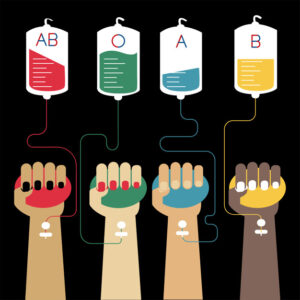A Short Guide on Oxford Dictionary

Oxford dictionary is a famous dictionary of the English language
introduced by Oxford University Press (OUP). It reflects the historical
progress of the English language in a simplistic way. It’s a vast source of
knowledge for scholars and academicians all over the world.
Although it started back in 1857 – it was published long after in 1884.
But, it was published with a different title. “Oxford English Dictionary” was
the first title used in 1895. It was in 1928 when the series of 10th volumes of
the dictionary was finally published.
The second edition of this dictionary came in 1989. In 2000, Oxford
started working on the 3rd edition of this dictionary. Besides, the electronic
mode of this dictionary was made in 1988. To speak of its online version, it
was available in 2000.
According to an information (2014) released by OUP, the 3rd edition of
this dictionary will come in an electronic version. The Chief Executive of the
OUP has said that there is some unlikeliness regarding the printing of the 3rd
edition.
Historical
Nature
The Oxford Dictionary is the best dictionary that provides the word
first. It contains complete information about the first usage of the word in
history. After the meaning of each term, there are short quotations written in
chronological order. It indicates the lifespan of the word. This format also
has influenced later editions and other historical projects.
Vast Size of
the Dictionary
According to the opinion of the publishers, it would take more than 120
years to include the 59 million words of the dictionary. As per the report of
2005, the Oxford dictionary had about 301,100 main entries. The latest edition
came in 20 volumes having 291,500 entries in 21,730 pages. Despite having a
large size, surprisingly this is not the world’s largest dictionary.
Origin of the
Dictionary
The work of the dictionary was started by a small group of scholar
persons in London for the Philological Society. This group of people came with
the idea of the dictionary long before in 1844.
In 1857, they set up an ‘Unregistered Words Committee’ to find the words that
were not properly explained in the current dictionaries of that time. They came
up with the following shortcomings in the dictionaries:
·
Incomplete explanation of various terms
·
Insufficient coverage of related stories
·
Incorrect dates of the first use of certain words
·
Improper differences among synonyms
·
No usage of good quotations
· Wastage of space for needless contents
The team noticed that the number of words not listed is much more than
the enlisted words in contemporary dictionaries. As was suggested by Trench in
1858, they decided to adopt a new comprehensive dictionary.
Editors of the
Dictionary
The Philological Society was occupied with immense hope of publishing a
new dictionary in 1870. They already had the printed pages with them – but,
there was a lack of an agreement. It was at this time that they went to the
Cambridge University Press and Oxford University Press. Negotiations continued
for about two years.
In 1879, the OUP finally agreed to publish the Oxford dictionary. They
have decided to pay Murray – he was both the president of the Philological
Society and the editor of the dictionary. They planned to complete the
dictionary in ten years.
Second Edition Oxford dictionary
The second edition of the Oxford dictionary was published on 30 March
1989. It consists of 21,730 pages. The editors of the second edition were John
Simpson and Edmund Weiner.
As the new volume was ready, it was well understood that it had to be
computerized, and it would be prepared for computer searching. The journey
towards this goal began in 1983.
Third Edition Oxford dictionary
This noted the launching of the online site of the Oxford dictionary in
2000. The editors started revising the second edition and are estimated to come
up with the third edition by 2037. The cost of this project is expected to be
around 34 million.
Conclusion
The Oxford dictionary is truly a ‘national treasure’ as noted by Stanley
Baldwin, British Prime Minister. The dictionary has received a lot of
appreciation from renowned personalities of the world. The Oxford dictionary
has made the lives of people much easier by explaining the meanings of the
English word in a short, simple and straightforward way.














